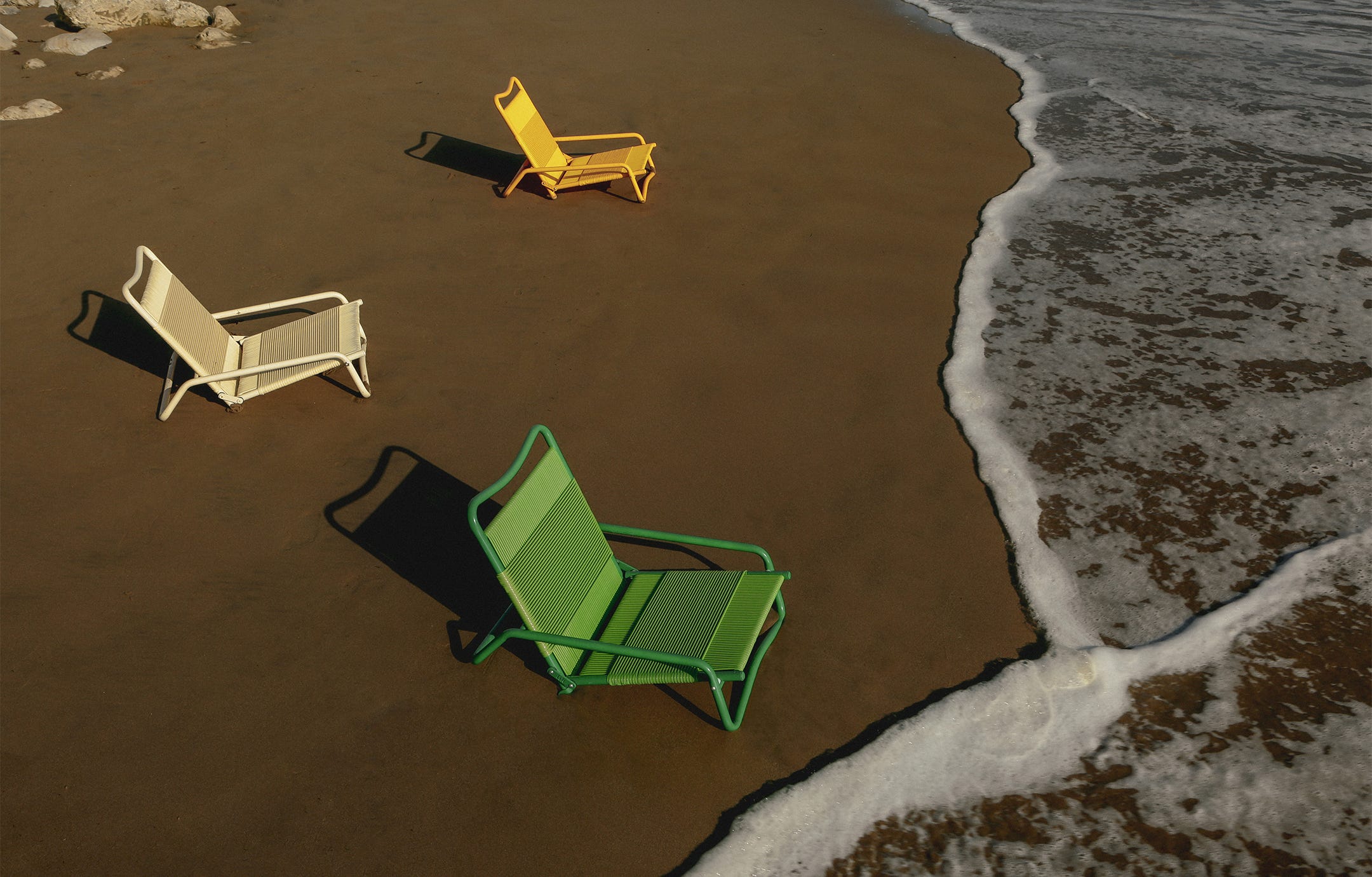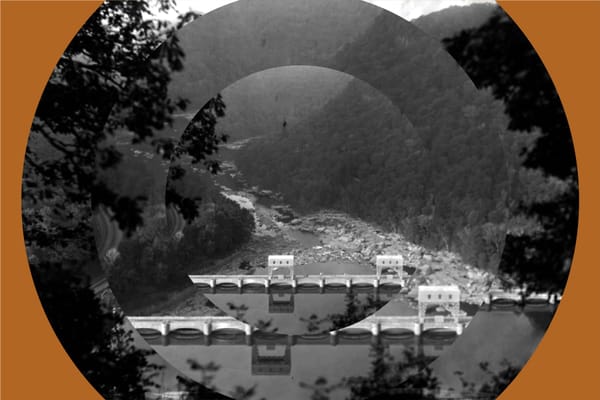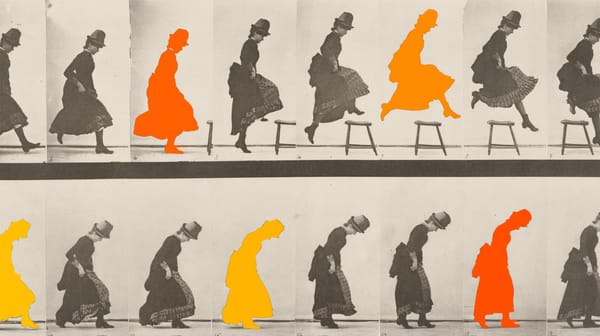Trail Marker
ITA Leisure founder Jade Akintola on lowering the barriers to outdoor pursuits for people of color
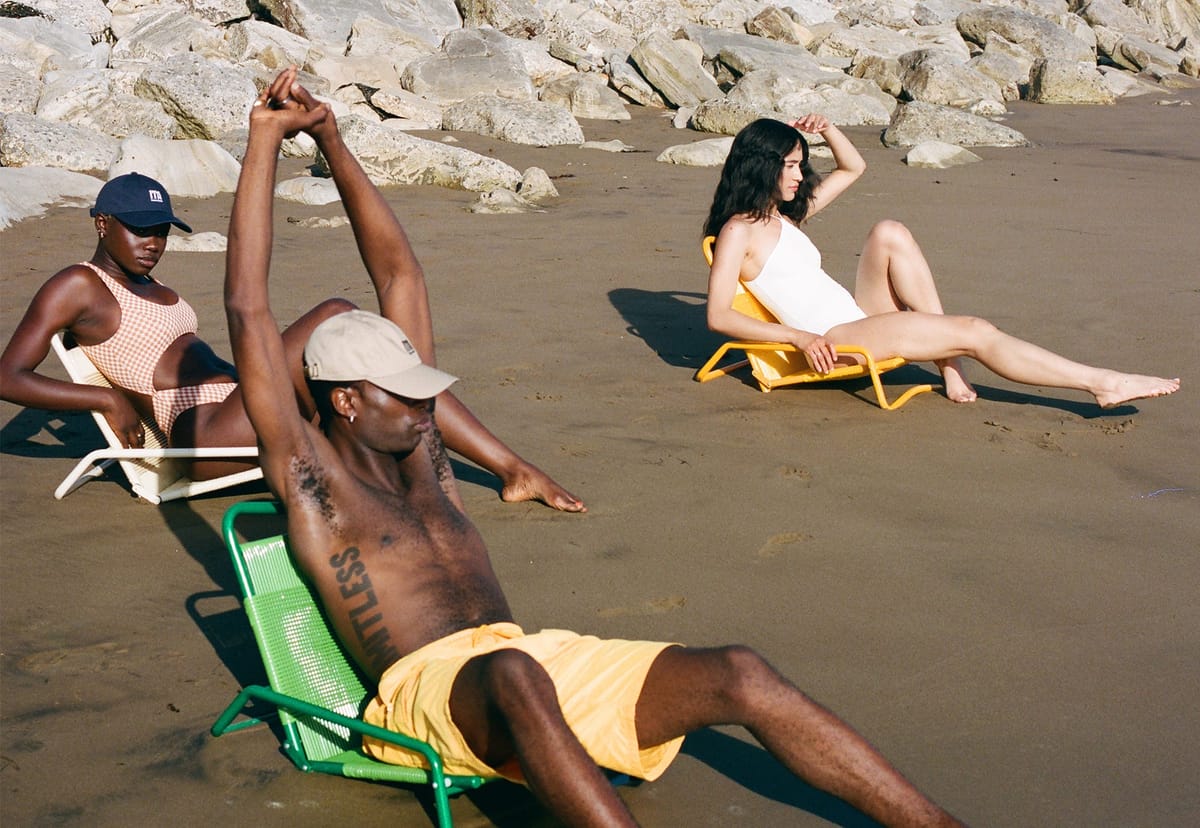
Jade Akintola founded ITA Leisure in 2021. In this interview, she discusses lowering the barriers to outdoor pursuits for people of color, working with BIPOC designers, and the power of building communities.
Frontier: ITA Leisure sounds to me like a great pandemic story: you were solving the immediate problem of being locked in and burned out, but the solution you decided upon, hiking and going to the beach, posed its own challenges. So you created a business that effectively responded to both. Can you tell me a little bit about the company’s origins?
Jade Akintola: My family is of Nigerian heritage. I was born and raised in London, where I lived until my early twenties. I attended private schools, which, in the UK at least, are less diverse spaces. While I wasn’t in the countryside, the schools’ leisure activities were things like ski trips, which I couldn’t necessarily afford. It became ingrained that spending time in the “great outdoors” was something my school friends did but not what Black people did.
As a young adult, I moved to California—a year in San Diego, a few years in Los Angeles—before settling in Brooklyn. I’ve always been a city person, always very career-focused. But fast forward to 2020 and, needing to get out, my partner and I went to Solana Beach, in San Diego, and did some hiking upstate. And I didn’t feel comfortable in those spaces. I didn’t see people that looked like me. I didn’t see products that reflected my culture and upbringing. I felt disconnected from the very thing that was supposed to restore me.
So why create a business? My background is in the agency world, client services. I have been fortunate to work with lifestyle, luxury, and technology brands. I’ve long wanted to solve a problem and have witnessed many companies use sophisticated processes and tactics to do just that. So when the problem arrived, this seemed like a natural response.
The benefits of working with BIPOC designers and manufacturers go both directions. The resulting products speak better to an often-neglected audience and, at the same time, outdoor gear is not a space many people of color get to play in as creatives.
Frontier: The ability to easily outsource production, warehousing, and shipping has led many people without business or engineering backgrounds to jump into the DTC product space. You chose to work directly with BIPOC creators as much as possible. Can you talk about that decision and the opportunities and challenges it presented?
JA: In terms of working with diverse creators and manufacturers, we’ve had to be flexible. But it’s important, especially at the design stage. Starting with the chair and the table, we really wanted to create something that didn’t look like the options on the market—traditional wooden chairs, sling chairs, the Tommy Bahama canvas-over-aluminum option. So we worked with Veta, based in Mexico City, and they brought so much craftsmanship and knowledge to the design process. We’re actually prototyping a few new items with them for next year.
The benefits go both directions. The resulting products speak better to an often-neglected audience and, at the same time, outdoor gear is not a space many people of color get to play in as creatives. It feels like a fruitful portion of our mission.
Frontier: Your original product line included items meant for the beach. Can you talk about the seasonality of outdoor activities and what future products you’re planning?
JA: It’s difficult to discuss our future plans because we’re self-funded, which means product development goes at its own pace; in that regard, I’ve had to manage my own expectations. And while the chair is certainly for the beach, you can use it anywhere outdoors. You could take it to the park and pair it with the market bag.
What I can say is that we’re focusing on activities that have low barriers to entry and that highlight the idea of spending free time doing things that are restorative. We’re working through gardening products, camping products, hiking products. Focusing on activities with a low barrier of entry helps our audience. My main priority is to ensure that people in communities of color understand the value of free time and have outdoor spaces which we feel are accessible. These products, and tapping into the conversation around the company, hopefully gives people confidence through shared knowledge.
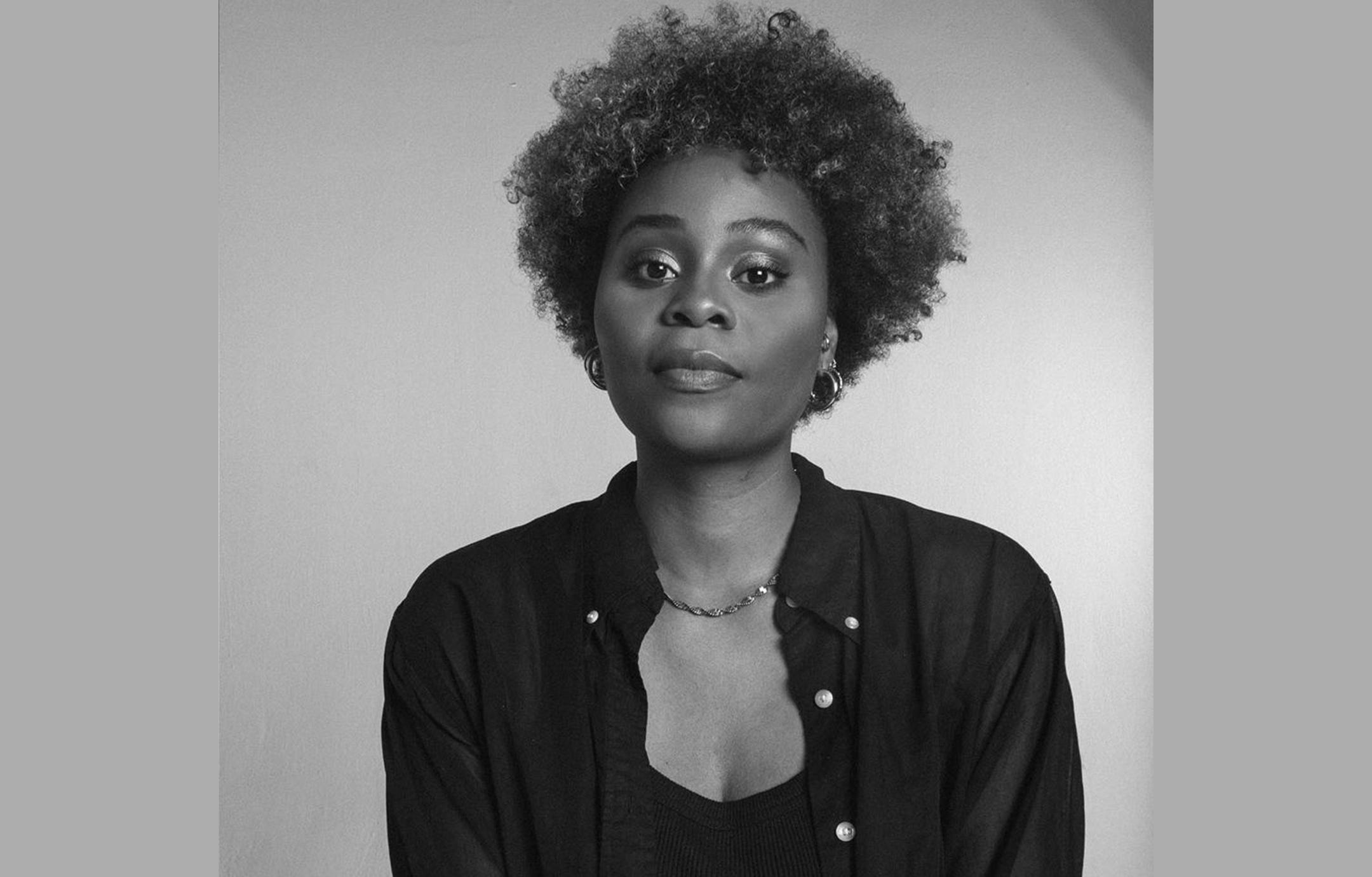
Frontier: Did creating the Nature Calls directory of groups championing inclusivity outdoors pull additional people and organizations out of the woodwork? Has it given you new opportunities for collaboration or otherwise served the business while serving your community?
JA: Yes. I am a novice to the outdoors, too, and I wanted the directory to help refute the idea, the misconception, that “Black people do not do the doors.” Black people have been stewards of the land for a very long time. A vast number of communities and organizations are doing great work. I wanted to acknowledge that their efforts laid the ground for ITA.
We have conversations with every group in the directory and, where they aren’t already doing so, we try to encourage them to speak with each other, too. We want to connect as many dots as we can. We are also working on our give-back program and forming a longer-term partnership with Black Outside, which has a wonderful annual camping program for girls that sounds like it would have been transformative for me had I had access to it when I was young.
Having these connections and showcasing these organizations is also another form of accessibility. I understand that, for many reasons, the price point of our initial slate of products is not something that everybody can afford. So the Nature Calls directory is just another way to underscore our core messages: everybody can enjoy the outdoors, we should restore our bonds with nature, we should build communities, we should enjoy ourselves.
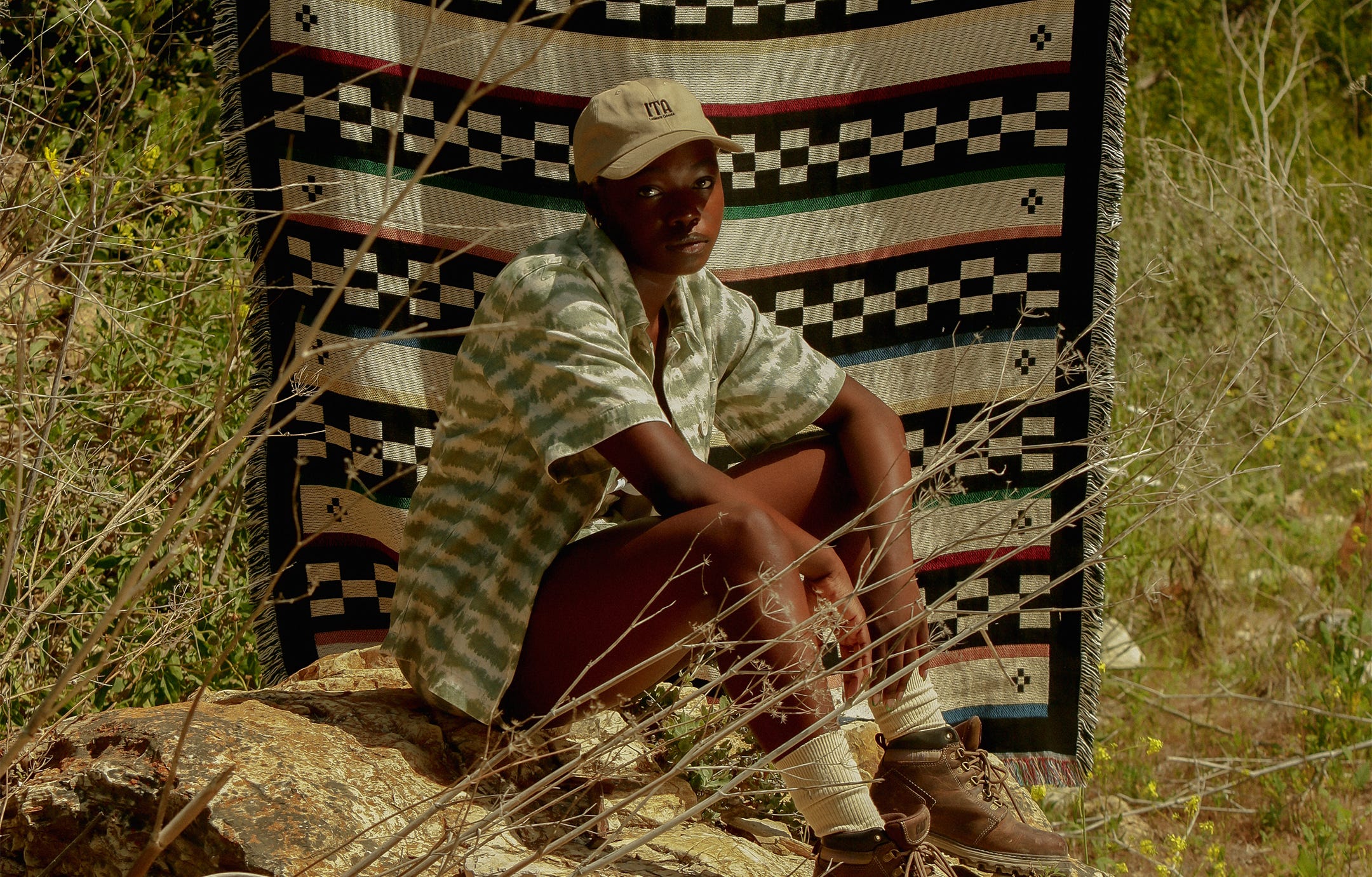
Frontier: Can you talk about the differences between the British and North American outdoor cultures?
JA: There are certain similarities. When I think of people of color being outdoors, there is something very specific to America: the history of slavery and segregation. In the UK, what I notice is that the lack of diversity is rooted in part in the fact that communities of color are concentrated in urban areas. But in the UK I don’t feel the same deep history of racism. I notice our absence, but perhaps, without the weight of that specific history, it is perhaps a bit easier to make the mental jump needed to confidently take up space.
Frontier: To put it bluntly: In America, the blood is on the land. In the UK, it’s more often scattered across the colonies.
JA: There’s some truth to that, but I’ll suggest another direction: when I’m thinking beyond the UK or America, I think about West Africa. I want to explore the region more, tell more stories. It’s a place Black people have always been and where we’ve always been outdoors. There are Black spaces where being outdoors has always been part of the culture. I want to celebrate that.
My main priority is to ensure that people in communities of color understand the value of free time and have outdoor spaces which we feel are accessible.
Frontier: Given your background in marketing and brand work, I’m sure you’ve made note of how much of the press and publicity you’ve received is from fashion and design publications, rather than media outlets focused on outdoor activities and lifestyles. Do you see the outdoors-focused media ecosystem as in need of a similar “disruption” that you are attempting with ITA?
JA: I’m not surprised that the media attention has come from more stylish venues. I’m trying to present the outdoors in a way that both demonstrates how valuable it is and demonstrates our aesthetic, which fits more into the worlds of design and fashion. And our current product line is more focused on leisure than active outdoor pursuits.
Do I think more outdoor brands, and the industry at large, could take a more inclusive approach? 100%. To be honest, the industry feels dated. A lot more time and effort could be spent on attractive storytelling around products and the people they are for.
